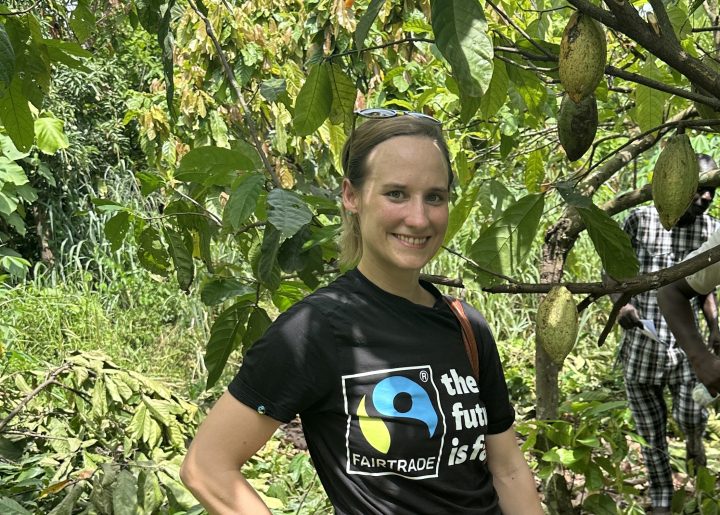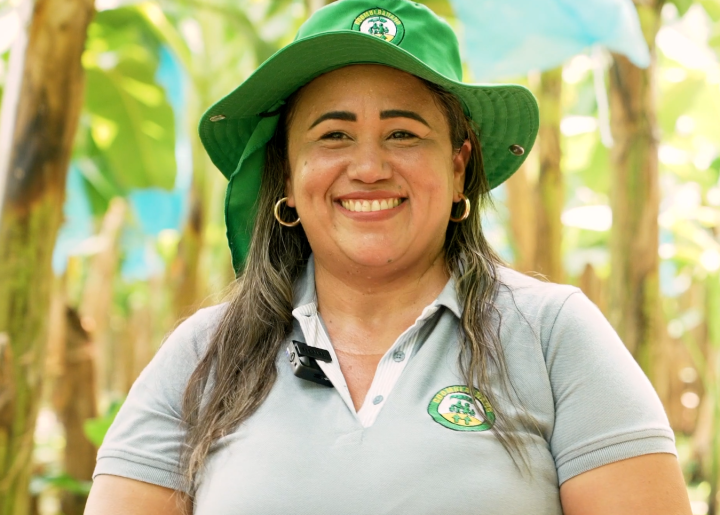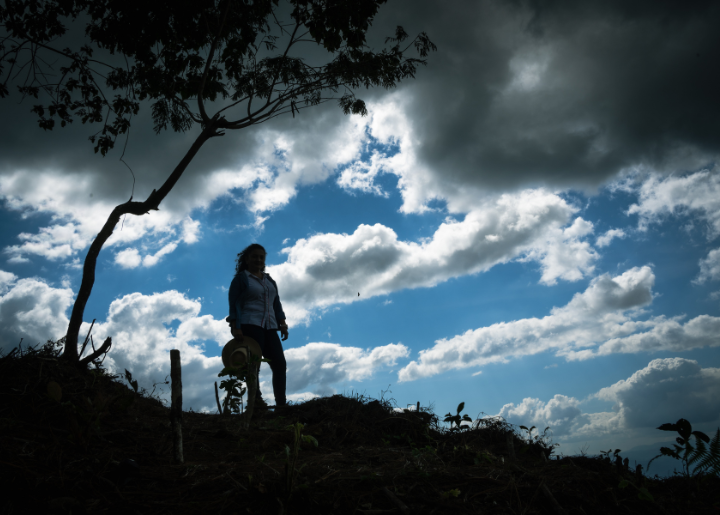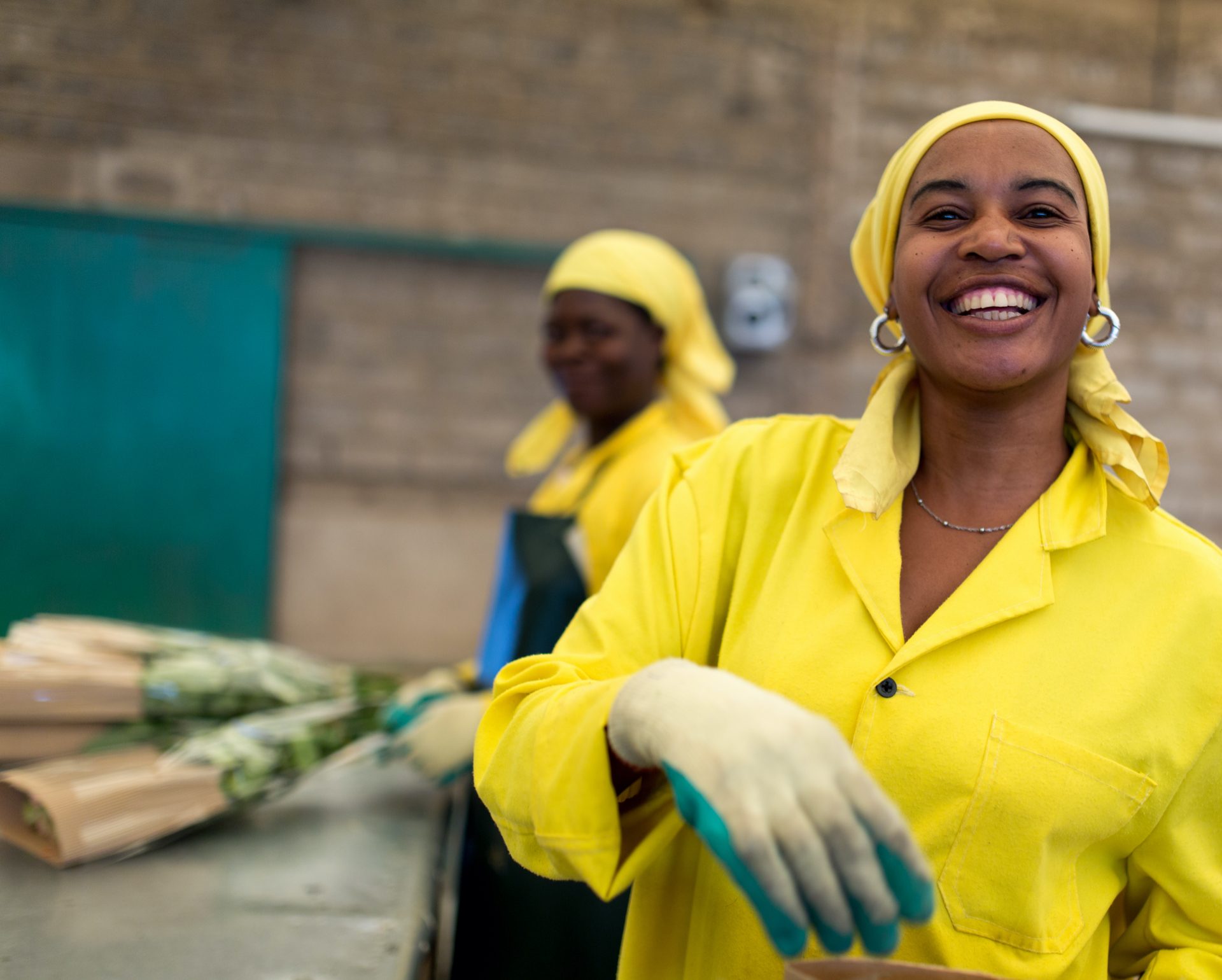Fairtrade Climate Heroes Take Action
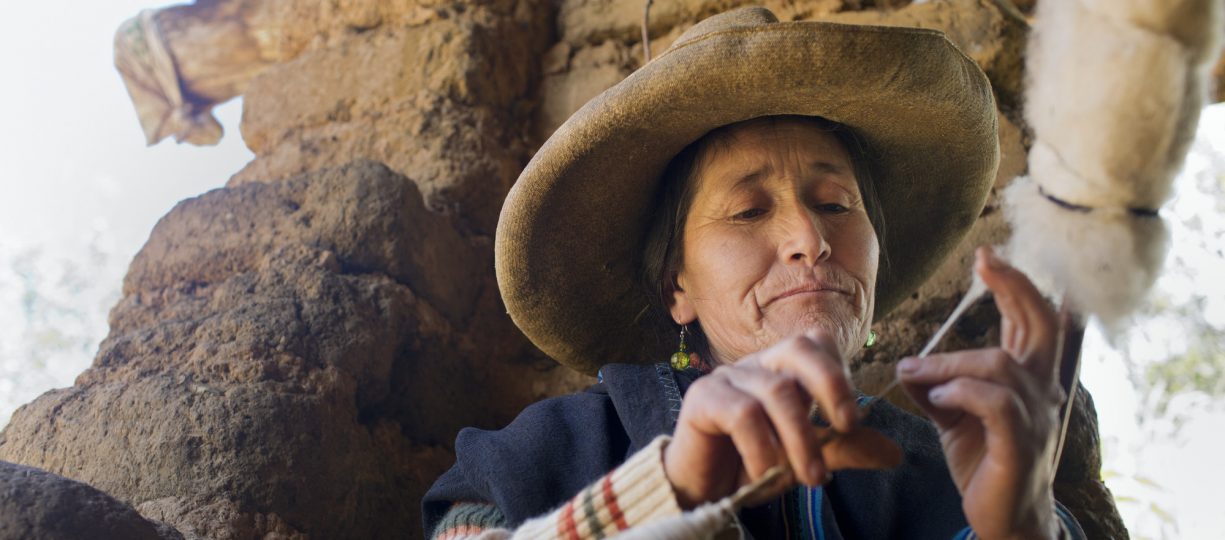
Unpredictable weather patterns, extreme temperatures, increased problems with pests. While some pretend that climate change isn’t happening, Fairtrade farmers around the world are facing undeniable impacts. But they aren’t waiting for world leaders at the COP21 meetings in Paris, many of them are taking action now.
Around the globe small-scale farmers who have contributed the least to climate change are feeling the brunt of its impact. The following stories are just a few of thousands from Fairtrade farmers and producer organizations working to adapt to a changing climate.
Fighting La Roya in Latin America
The 2012-2013 coffee growing season was devastating for thousands of farmers from Mexico on down through Peru. Higher temperatures and more moisture aided the spread of coffee rust, or La Roya, a debilitating fungus that can wipe out entire farms forcing farmers to start over from scratch (a process that can take over five years before being back to capacity).
On the slopes of the San Salvador volcano in El Salvador, the farmers of Jabali Cooperative lost nearly all of their coffee plants to La Roya. With funding from Fairtrade International and support from the CLAC (the Fairtrade Producer Network in Latin America), the cooperative is now recovering from this catastrophe and becoming a case study for other farms affected by rust.
“It has been difficult but we are working together to face the situation because coffee is our future,” says Rigoberto Aguilar, a coffee farmer member of Jabali. “The results of the project motivate us to continue improving. We are expecting to recover and, in three years from now, to be producing coffee again”.
Farmers at Jabali have been trained on climate change and are learning sustainable land management practices. In 2015 farmers planted 45,000 new coffee plants.
In the Wake of Extreme Weather
Fairtrade farmers in the Philippines are no strangers to the perils of climate change. Heavier rains and more frequent, stronger cyclones and typhoons are damaging their crop and putting their farms at risk of soil erosion, floods and landslides.
The international Fairtrade system has partnered with Alter Trade Corporation (ATC) and sugar cane farmers at the Nakalang Padilla Workers’ Association to educate farmers on climate change vulnerabilities and risks, helping them to identify and implement adaptation measures.
Efforts include: reforestation, expanding their crop diversification program, and establishing demonstration plots to test and implement new techniques for sustainable agricultural land management practices. The producers also identified the need for new water management techniques such as irrigation systems, water recycling and water harvesting.
Empowering Women in Adaptation
Women are disproportionately vulnerable to climate change. In Kenya women contribute up to 70% of the labor in coffee production, but most of them don’t own land or coffee trees and are therefore unable to earn an income or participate as members of their cooperatives.
“We fear low coffee production in [the] future because of climate change,” says Zeddy Rotich, coffee farmer at Kabngetuny Cooperative.
At Zeddy’s co-op, that reality is starting to change. In January 2015, a three-year project was launched, working with over 300 women from the cooperative to increase the yield, quality, and resilience of their coffee bushes. Zeddy is also the first of 200 women in the cooperative to install a bio-gas cooking unit, thanks to the project. Bio-gas units use cow dung to produce gas for cooking, meaning far less trees are chopped down for firewood and women are no longer exposed to smoke when cooking.
Many Efforts, a Common Goal
Though Fairtrade farmers around the world are making big changes in their daily life, they are cognizant that the impact of their efforts are reliant on decisions taken on the global stage.
“I would like to ask world leaders not to forget us, so that we can continue farming despite this challenge of climate change,” said Zeddy. “If large polluters – like the US and China – do not take concrete steps to reduce their carbon footprint, the impact of climate change will be even greater.”
See three more examples of Fairtrade Climate Heroes on our YouTube page.
Read about the international Fairtrade system’s work to address climate change.
Topics
We’re in this together
Fairtrade America partners with brands on the journey to certification and beyond. We can help with everything from finding a certified supply chain to marketing your newly certified product.
Get in Touch
